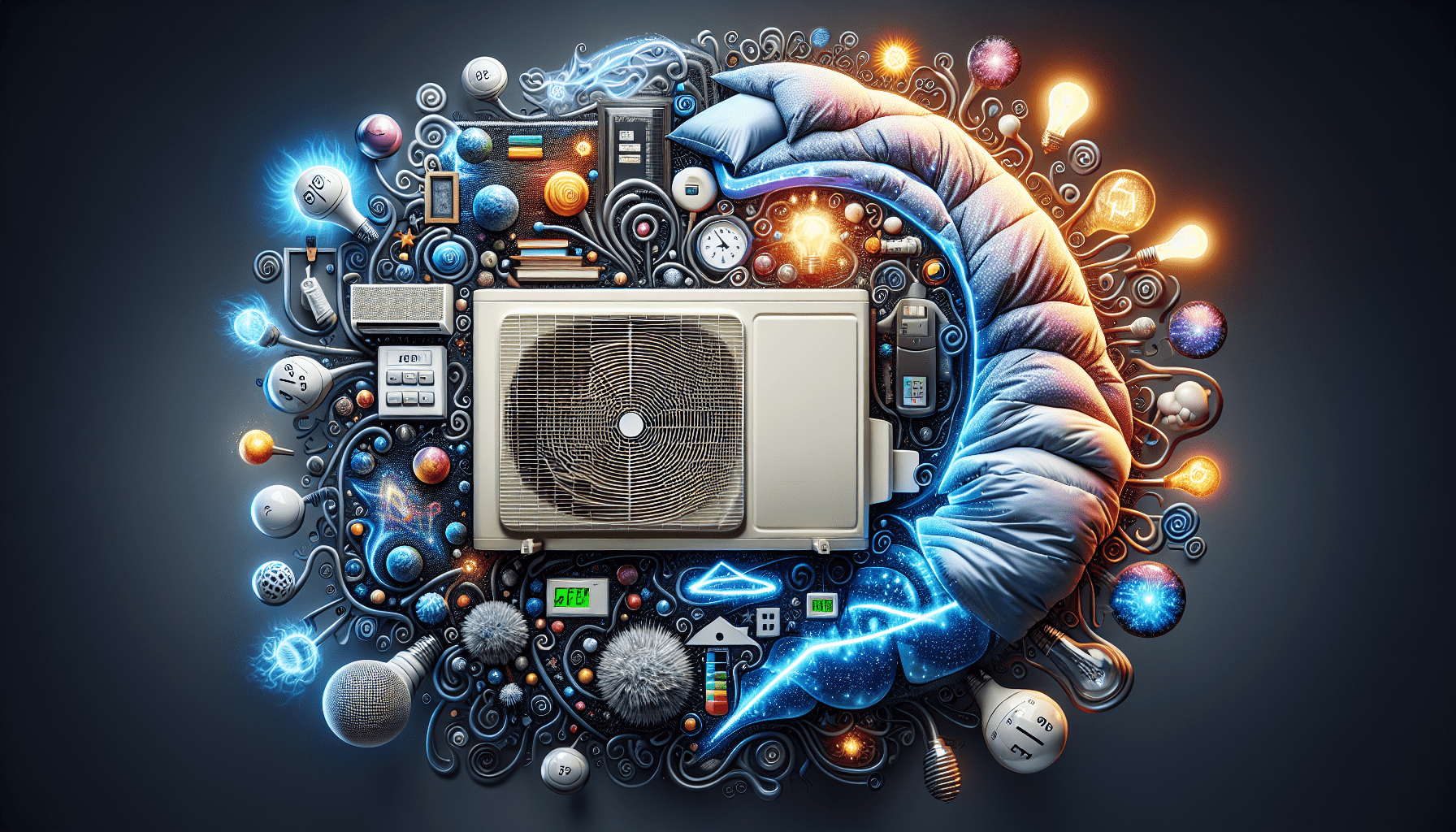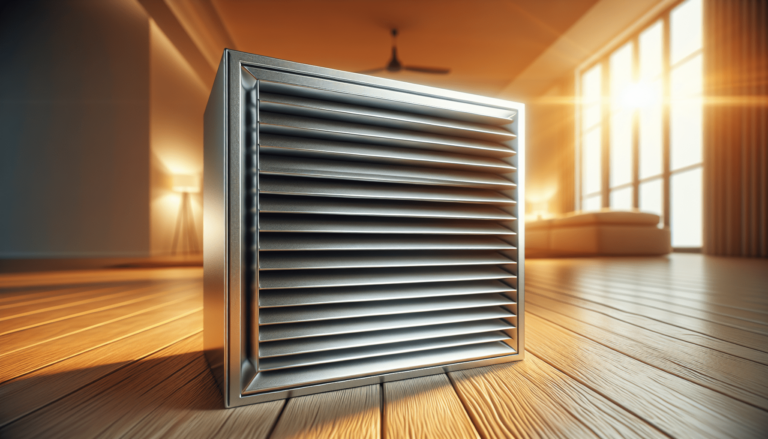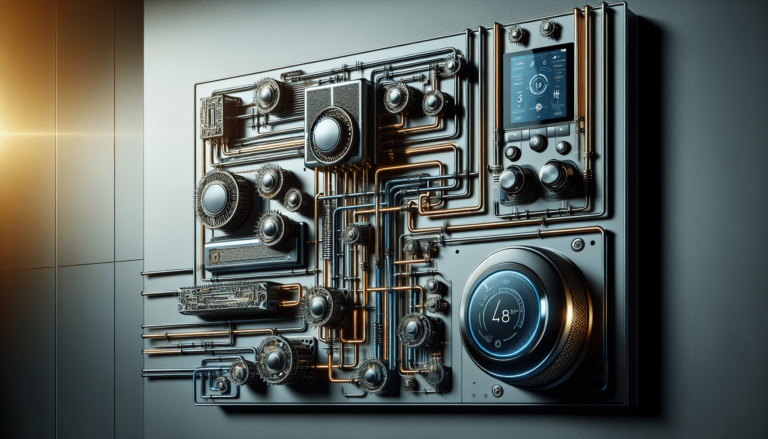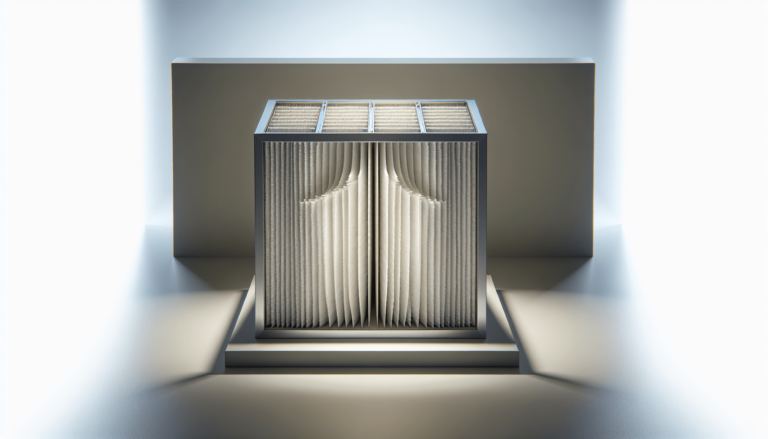

HVAC Services
Get Professional Repairs From The Area's Trusted HVAC Technicians. Ask About Our Services! We Offer Professional Heating & Cooling System Repairs And Guarantee Long-Lasting Results.
Got Question? Call us: (850) 678-2665Financing
Common Misunderstandings About HVAC Energy Consumption
Explore HVAC energy myths with humor and clarity. Learn why "bigger" isn't better, the power of smart thermostats, and more ways to cut energy costs efficiently!

Have you ever wondered why your energy bills seem higher than expected, even when you think you’ve been judicious about using your heating and cooling systems? It’s a common puzzle many face, often due to misunderstandings about HVAC energy consumption. Let’s navigate through these misunderstandings with clarity and humor.
Does Size Matter?
Bigger Isn’t Always Better
There is a widespread saying that bigger is better. This notion can lead many to choose larger HVAC systems than necessary. However, in HVAC terms, bigger often means waste. Oversized units cycle on and off more frequently. This uses excess energy without offering extra comfort—and it can lead to higher maintenance costs. Think of it like buying a mansion but living in just one room; the space seems impressive, but what’s the point if you can’t enjoy all of it comfortably?
Right-sizing for Efficiency
Choosing the right size HVAC system is crucial. This involves understanding your home’s size, insulation, and specific climate conditions. A system that fits your space properly operates efficiently and maintains consistent temperatures, similar to how a tailor makes sure your suit fits perfectly rather than drowning you in fabric. Consult with a professional to determine your ideal system size.
The More You Use, the More You Pay—Or Do You?
Common Misconceptions on Usage
It sounds intuitive that using your HVAC less saves money, right? Yet, many find themselves paying high utility bills despite this practice. The misconception lies in how the system operates. HVAC units often require significant energy to start up; therefore, frequent cycling can lead to increased consumption. It’s akin to jamming your car’s accelerator pedal every time you start from a stop—it’s neither smooth nor energy-efficient.
Steady Temperatures Pay Off
Instead of frequently adjusting your thermostat, aim for consistency. Setting your thermostat a few degrees higher in summer or lower in winter and maintaining that setting saves energy. Using a programmable thermostat can help control usage, much like setting an automatic coffee machine to wake you up with a fresh brew—you plan ahead, and the payoff is both economic and enjoyable.

Myths About Maintenance
If It Isn’t Broken, Don’t Fix It?
Skipping HVAC maintenance seems like a simple method to save money. Unfortunately, delaying service often leads to poorer efficiency and more expensive repairs. Think of maintenance like dental check-ups—it’s better to clean regularly than wait for a toothache to compel you into the dentist’s chair.
Scheduled Maintenance Keeps Costs Down
Regular maintenance checks ensure your system is running efficiently. Cleaning or replacing filters, inspecting ducts and coils, and verifying system controls reduce energy consumption significantly. Instead of handling a major overhaul later, regular tune-ups keep your system operating smoothly, reflecting the satisfaction of catching up with an old friend who’s always there to lend a hand.
Does Your Thermostat Have a Learning Curve?
The Regular vs. Smart Debate
Old-school thermostats can seem straightforward, urging some to stick with them. Yet, they lack the features of smart thermostats that can significantly decrease energy usage. Imagine your landline phone striving to perform the functions of your smartphone; the potential for efficiency and control just isn’t there.
Benefits of Smart Thermostats
Smart thermostats learn your schedule and adjust temperatures automatically. They also provide insights into energy usage, which can help identify patterns to tweak for better efficiency. They empower you to manage comfort effortlessly, like a skilled puppeteer deftly controlling marionettes with a few strategic spins of the dial.

Understanding Energy Ratings and Labels
Energy Star and SEER—What Do They Mean?
Staring at labels can be overwhelming, especially when you’re unsure what Energy Star or SEER ratings signify. These aren’t mere decorations but indicate how efficiently HVAC systems operate. For example, SEER (Seasonal Energy Efficiency Ratio) measures cooling efficiency, and Energy Star labels show products that meet energy-efficiency guidelines. It’s like deciphering a movie rating system that helps you pick what’s suitable and worthwhile.
The True Cost of Efficiency
Higher-rated systems typically cost more upfront, which may deter investment. However, they save more over time through reduced energy consumption. Choosing these systems equates to investing in organic produce over junk food—a higher initial cost pays off with better health and lower long-term expenses.
Is Closing Vents a Smart Move?
The Myth of Unused Space Savings
Closing vents in unused rooms seems intuitive for saving energy. Yet, modern HVAC systems distribute air based on a balance across open and closed pathways. Closing vents disrupts this and can lead to increased pressure, reduced efficiency, and potential equipment damage. Consider it as trying to perform a delicate dance while someone ties weights to your ankles—it complicates the routine substantially.
Let the Air Flow
Allowing air to flow freely ensures your system functions optimally. You can make adjustments based on preferences, but ensure the equilibrium in air distribution remains unchanged. A wise approach would be like guiding a well-rehearsed symphony; every instrument and note must play harmoniously for the beautiful composition to unfold.
Age Before Beauty?
Old Systems vs. New Technology
Sticking with an old HVAC system may appear prudent, especially if “it’s worked fine until now.” However, modern systems provide vastly superior efficiency and reliability. Holding onto the past could mean clinging to your ancient flip phone while new models offer sleek designs and smart features.
When to Upgrade
An upgrade may seem daunting due to cost concerns, but newer options can substantively lower long-term bills. Assess your current system’s age, performance, and repair history. Much like swapping your old jalopy for a hybrid car, the monetary outlay will eventually sweeten with fuel savings and fewer repairs.
Is HVAC Automation All It’s Cracked Up to Be?
Convenience at What Cost?
Automation seems like the gold standard for modern homes, promising unrivaled convenience. But skepticism abounds over its impact on energy usage. Essentially, automation simplifies management rather than pushing energy use sky-high.
How Automation Saves Energy
Automated climate control systems maintain optimal conditions with minimal human intervention. They efficiently regulate usage based on occupancy and preferences. Automation enhances efficiency the way a set of high-tech kitchen gadgets streamlines meal preparation, transforming culinary challenges into effortless dining delights.
Walking the Green Mile
Can an HVAC System Be Environmentally Friendly?
Making green choices for HVAC systems can seem challenging, given the environmental toll of energy usage. Yet, innovations allow these systems to operate with minimal impact, improving sustainability without sacrificing comfort.
Choosing Eco-Friendly Options
Look for HVAC systems with environmentally friendly features, such as renewable energy compatibility or eco-friendly refrigerants. This is akin to choosing solar panels for your roof—they may require investment but promote environmental health and future cost savings.
Debunking DIY vs. Professional Installations
Balking at Professional Costs
Many homeowners attempt to install HVAC systems themselves to save money. While initially appealing, DIY installations increase the risk of incorrect setups leading to inefficiencies or damages. Envision doing self-dentistry for a toothache—the potential price of errors outweighs short-term savings.
Advantages of Professional Installation
Professional installers ensure correct setup and optimal function, much like a professional chef intuitively knows just how much spice will turn your dish into a masterpiece. These specialists balance your system’s needs, delivering long-term returns through enhanced efficiency and peace of mind.
Final Thoughts
Understanding HVAC energy consumption uncovers complexity, as myths often hold more sway than facts. Gaining correct insight helps lower bills, optimize efficiency, and ensure comfort. Much like a captivating narrative by your favorite storyteller, demystifying HVAC truths can remarkably enhance your energy management experience.
Want to Know More?
If lingering questions persist about optimizing your system, consider consulting experts at Tempacure Heating and Air Conditioning. Their knowledge can disentangle myths and provide clarity, much like that first refreshing breeze after an exhausting day under the Floridian sun.
For those in Niceville, Florida, Tempacure offers expertise to tailor specific recommendations. Empower your home with optimal HVAC solutions by reaching out or visiting the Tempacure website to ensure your systems tick seamlessly and sustainably.







